Meet Our Researchers
Since September 2014, BroadIgnite has supported a wide array of innovative projects to drive biology forward and revolutionize our understanding of disease. Learn more about our awardees and their funded projects below.
2025
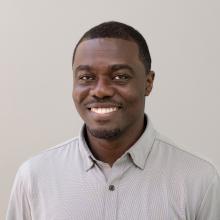
- Postdoctoral Researcher, Roby Bhattacharyya Lab at the Broad Institute
“I want to show that immune variation from person to person isn't just noise. It's meaningful, predictable, and actionable.”
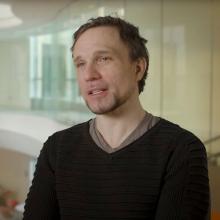
- Senior Computational Scientist II, Data Sciences Platform at the Broad Institute
"Our goal is to understand how DNA sequence affects its structure—and therefore, its function—in human tissues."
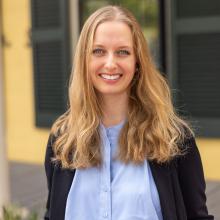
- Postdoctoral Researcher, Beth Stevens Lab at the Broad Institute
“Instead of linking a diagnosis to genes, I’m connecting groups of genes to their collective effect on cellular function.”
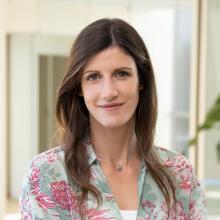
- Postdoctoral Researcher, Adam Granger Lab at the Broad Institute
“We know interneurons matter in neurological disorders. I want to figure out which interneuron subtypes are involved—and how their functions change in disease.”
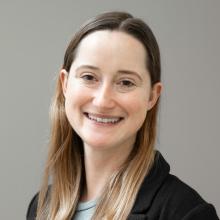
- Postdoctoral Researcher, David Liu Lab at the Broad Institute
“Many gene-editing approaches focus on a specific disease. My aim is to develop gene therapies that can be applied more broadly.”

- Postdoctoral Researcher, Patrick Ellinor Lab at the Broad Institute
“There has been little innovation in drugs for aortic aneurysms for decades. But if we inhibit this particular gene, we can potentially protect people from sudden cardiac death.”
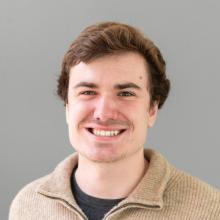
- Graduate Student, Fei Chen Lab at the Broad Institute
“If we can learn to engineer immune hubs, we could supercharge cancer vaccines or immunotherapies.”
2024

- Postdoctoral Scholar, Program in Medical and Population Genetics at the Broad Institute
Vijay Ganesh is improving the genetic diagnosis of rare neuromuscular disorders.
Despite major advances in genome sequencing technologies over the past few decades, the majority of individuals with a suspected genetic disease still lack a confirmed diagnosis. This unmet need is especially prevalent for neurogenetic disorders. As a neurologist at Brigham and Women’s Hospital, Vijay will tackle this challenge with his BroadIgnite project. Specifically, he will partner with the Broad Proteomics Platform, deploying machine-learning approaches to develop an assay that detects protein expression outliers from individuals with unsolved rare genetic diseases. Vijay’s goal is to develop a scalable method from clinically-accessible tissues that can both augment novel gene discovery and resolve variant-to-function associations, ultimately shortening the diagnostic odyssey for patients and potentially informing tailored genetic therapies.
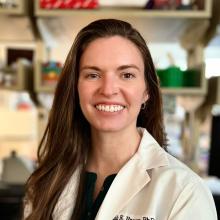
- Associated Researcher at the Broad Institute
Hannah Brown Harding is studying how the immune system responds to fungal pathogens.
Fungal pathogens, such as Candida albicans, cause some of the most prevalent and deadliest infections in patient populations. Yet there are only a few effective antifungal therapeutics. Hannah is working to change this. With her BroadIgnite award, she will profile fungal extracellular vesicles—membrane-bound particles secreted by fungi that help infect the host—and investigate how the host immune system responds to them. This work can yield crucial insights into the biology of fungal pathogens, pointing researchers toward new antifungal strategies.
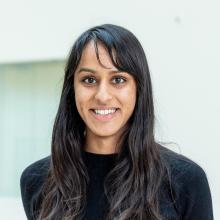
- Postdoctoral Fellow, Erin Chen Lab at the Broad Institute
Soumya Kannan maps interactions between microbial and human proteins to glean new insights into how our microbiome impacts health.
The human microbiome—the community of microorganisms (such as bacteria, fungi, and viruses) that live in and on the human body—impacts a variety of biological processes in both health and disease. But the molecular mechanisms driving this microbiome–host crosstalk remain poorly understood. For her BroadIgnite project, Soumya plans to develop high-throughput strategies to identify interactions between the microbiome proteins found throughout the human body, including the gut, mouth, skin, and more, and human proteins as well as characterize their biological functions—research that can eventually decode microbiome-associated disease pathways.

- Postdoctoral Scholar, Xiao Wang Lab at the Broad Institute
Jennifer Lo is investigating the interplay between skin cancers and the immune system.
As a dermatologist at Harvard Medical School, Jennifer has seen how immunotherapies, such as immune checkpoint inhibitors, can treat melanoma—a type of aggressive skin cancer—effectively in some patients but not others. Her BroadIgnite project seeks to understand this variability in patient response using recently developed spatial sequencing approaches in mouse models and patient samples. She aims to uncover mechanisms underlying resistance to checkpoint inhibitors in melanoma; identify ways to promote patient response to treatments; and test novel immunotherapy strategies.

- Postdoctoral Fellow, Fei Chen Lab at the Broad Institute
Andrew Russell builds spatial single-cell sequencing tools to better understand communicable and noncommunicable diseases.
Throughout our lives, the nonreproductive or somatic cells in our bodies are constantly undergoing DNA mutations—changes that can sometimes lead to an increased risk of cancer and other diseases. Andrew’s BroadIgnite project seeks to better understand the genetic landscape of somatic mutations; how they are acquired by cells and tissues as we age; and how they contribute to human disease. For this, he will build novel sequencing tools and enhance a technology he has already pioneered, called Slide-tags, that allows researchers to deeply profile individual cells while also retaining their spatial locations as well as information on their cellular environment. (This information is often lost in traditional sequencing techniques.)

- Graduate Student, Laura Kiessling Lab at the Broad Institute
Shiwei Wang is developing technologies to visualize and study complex carbohydrates in the brain.
All cells in the brain are covered in carbohydrates, such as heparan sulfate (HS), which plays a critical role in forming neuronal connections as well as in neurodegenerative conditions like Alzheimer’s disease. However, it has long been challenging to study this important carbohydrate without removing it from its biological context. As a BroadIgnite awardee, Shiwei will tackle this by building a set of novel optical sequencing tools that can visualize and profile individual HS molecules in intact biological samples—work that can advance our understanding of HS and its neurobiological functions.
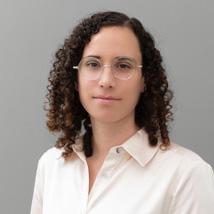
- Postdoctoral Fellow, Feng Zhang Lab at the Broad Institute
Shai Zilberzwige-Tal decodes the evolutionary origins of bacterial gene-editing systems, such as CRISPR.
This year, the first-ever CRISPR-based gene therapy was approved for use in sickle cell disease patients. While this is a powerful example of how gene therapies are transforming treatments, the field still faces a major challenge: creating safe delivery vehicles that can send gene therapies to the right cells in the right organs. One promising option is deactivated viruses. Shai will use her BroadIgnite funding to leverage machine-learning approaches and create a pipeline for engineering new and robust viral delivery vehicles that can be easily targeted to specific cell types—improving gene therapy efficacy and reducing side effects.
2023
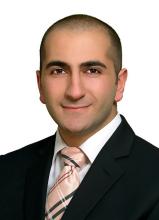
- Postdoctoral Scholar, Cancer Program at the Broad Institute
Yousef Badran is decoding the genetic landscape of inflammatory gastrointestinal disease.
Somatic mutations occur over the course of the lifetime, and as a gastroenterologist, Yousef investigates how these changes influence benign gastrointestinal diseases. With his BroadIgnite funding, he plans to leverage clinical samples from Massachusetts General Hospital (MGH) and the MGB Biobank to investigate somatic mutations in three different inflammatory gastrointestinal diseases—microscopic colitis, eosinophilic esophagitis, and a colitis caused by cancer immunotherapies—to decipher how they impact these conditions.
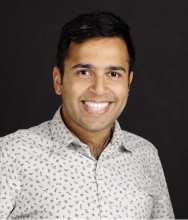
- Postdoctoral Fellow, Eric and Wendy Schmidt Center at the Broad Institute
Salil Bhate deploys AI-based technologies to understand how the genome encodes the structure of complex tissues.
Changes in the cellular organization of tissues impact a range of diseases, including autoimmune disorders, neurodegenerative conditions, and cancers. Indeed, tumor progression hinges upon the cellular composition of surrounding tissues. As a BroadIgnite awardee, Salil will apply AI to molecular and genetic datasets to identify regions of the genome that control how cells are arranged in tissues—work that can someday inform effective new therapies for patients.
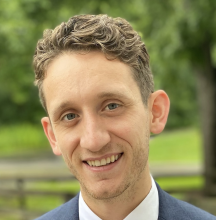
- Postdoctoral Associate, Kidney Disease Initiative at the Broad Institute
Matt Brown is studying how cellular homeostasis is disrupted in kidney disease.
To tackle rare kidney disease, Matt will draw upon his training in physiology and biomedical engineering and apply multiplexed imaging—which can capture thousands of cellular features simultaneously—to detail the molecular processes that disrupt cellular homeostasis in kidneys. His BroadIgnite work will not only improve our understanding of kidney disorders but also accelerate biomarker discovery, enabling researchers to better understand and measure disease progression.

- Research Scientist, Jones Group and Lander Lab at the Broad Institute
Elisa Donnard is decoding regulatory mechanisms that directly influence gene expression.
All cells have the same genetic code—what determines their type, state, and function is gene expression. However, much of what regulates gene expression is still poorly understood. Elisa's BroadIgnite project seeks to leverage common genetic variants to study regulatory regions of the genome, which control gene expression and are critical to understanding human disease. Specifically, she will use differentiated stem cells to glean insights into how genetic variants drive regulatory changes in liver cells and apply this knowledge to understand metabolic diseases.
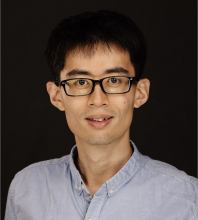
- Postdoctoral Fellow, Eric and Wendy Schmidt Center at the Broad Institute
Wengong Jin develops predictive and generative algorithms for antibody discovery.
How specific antibodies and antigens bind to one another informs a range of treatment strategies, including cancer immunotherapies. However, current methods only allow researchers to evaluate only one or just a few interactions at a time. Wengong seeks to change this with his BroadIgnite award, and plans to build a novel deep-learning model to predict multiple antibody–antigen binding relationships at once—a tool that can advance disease areas, such as cancer, autoimmune disorders, and infectious disease.

- Associated Scientist, Stanley Center for Psychiatric Research at the Broad Institute
Konrad Karczewski creates methods to identify the function of human genes and probe gene regulation.
Genome-wide association studies have linked genetic variants to specific phenotypes and disease risks, but we still do not fully grasp how these variants impact biological processes, or have the tools to identify variants that may emerge in the future. With his BroadIgnite project, Konrad plans to address this gap by analyzing the genetics of healthy individuals to detail the landscape of genetic variants—both common and rare—and link them to biological functions. Importantly, he will also build tools to predict new variants, including those that do not exist within the population yet as well as ones that have not been identified in studies so far.
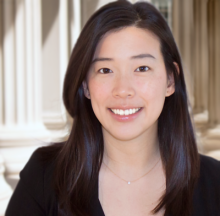
- Graduate Student, Chen Lab at the Broad Institute
Sophia Liu builds spatial technologies to illuminate new insights into the mechanisms driving adaptive immunity.
The human immune system changes over a lifetime, which can pose challenges to one’s health. For instance, elderly people often have a harder time responding to vaccines compared to the younger population. As a BroadIgnite awardee, Sophia seeks to create spatial transcriptomics tools to capture T cells and B cells in adaptive immunity that drive these changes—in response to disease, aging, or pregnancy—and inform approaches that can rejuvenate immunity in these contexts.

- Graduate Student, Chemical Biology and Therapeutics Science Program at the Broad Institute
Amanuella Mengiste is engineering biomolecules and building tools to carry out evolutionary experiments in the lab.
Directed evolution—which mimics the natural evolutionary process in a laboratory setting—holds the potential to accelerate the pace of scientific research, but has yet to be optimized across a range of systems. With her BroadIgnite award, Amanuella aims to tackle this challenge, and optimize directed evolution techniques in systems, ranging from bacteria and yeast to plant and mammalian cells.

- Postdoctoral Fellow, Cancer Program at the Broad Institute
Erin Parry is investigating the progression of slow-growing lymphomas into aggressive ones.
As an oncologist at Dana-Farber Cancer Institute, Erin has seen how quickly a patient’s indolent lymphoma can transform into a drug-resistant or rapidly growing cancer, making it extremely difficult to treat—a transformation poorly understood by scientists. Erin’s BroadIgnite project seeks to change this by using single-cell technologies to pinpoint the cellular changes that occur during this dramatic progression, ultimately identifying targeted treatment opportunities for aggressive lymphomas.

- Postdoctoral Scholar, Gerstner Center for Cancer Diagnostics at the Broad Institute
Shervin Tabrizi is developing sensitive blood-based biopsies for detecting cancer.
Physicians currently rely on medical imaging to detect tumors in patients and monitor those in remission, but this method has limitations and a patient’s cancer can go unnoticed until it has already metastasized. To tackle this, Shervin, who is a radiation oncologist at Massachusetts General Hospital, will leverage his BroadIgnite funding to build tools that can detect microscopic levels of tumor DNA in patient blood samples for early, non-invasive cancer diagnosis.
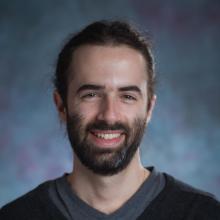
- Postdoctoral Scholar, Epigenomics Program at the Broad Institute
Josh Tycko develops high-throughput synthetic biology technologies to manipulate and measure human gene regulation.
Genetic therapies hold tremendous potential to treat diseases and improve human health, but their success relies on accurate systems that can deliver these treatments precisely to specific organs and cell types. As a BroadIgnite awardee, Josh aims to help bring promising genetic medicines closer to the clinic by elucidating the mechanisms by which secreted proteins reach their target destinations in the body—processes that can someday be harnessed to deliver treatments precisely to specific cell types.

- Postdoctoral Scholar, Golub Lab at the Broad Institute
Mounica Vallurupalli is studying the biology of blood cancers, such as myelodysplastic syndromes and leukemia.
Blood cancers arise from mutations in bone marrow stem cells, and nearly 50 percent of these mutations are due to defects in splicing—an essential regulatory process where noncoding regions of the genome and coding regions are joined together to generate various proteins. With BroadIgnite support, Mounica, who is an oncologist at the Dana-Farber Cancer Institute, will deploy a novel approach to systematically map how dysfunctions in splicing impact the progression of blood cancers, eventually informing new much-needed treatment strategies.
2022
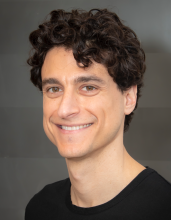
- Senior Machine Learning Scientist, Data Sciences Platform at the Broad Institute
Sam Freidman wields his machine learning expertise to build models that can both drive foundational research and impact clinical care, such as predicting risk for common heart conditions like heart arrhythmias.
Large biological datasets have enormous potential in helping to answer important questions on human health and disease but they are challenging to study, especially when dissecting individual data inputs—an issue known to perpetuate biases against marginalized groups. Sam, who previously worked on visualizing data at Apple, will address this as a BroadIgnite awardee by developing machine learning methods to identify and mitigate biases in large biological datasets, including those involving sex and race.
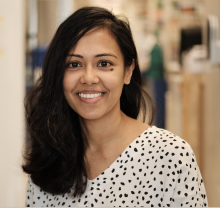
- Group Leader, Bioinformatics & Computational Biology, Senior Research Scientist at the Center for the Development of Therapeutics at the Broad Institute
Sumaiya Iqbal bridges genetics and proteomics with data science and machine learning in the quest for new therapeutics.
Sumaiya has uveitis, a rare autoimmune disease causing inflammation of her retina and impairing her vision. As a rare disease patient, she wants to help others like her by investigating the mechanisms underlying monogenic diseases, single-gene disorders that make up most rare genetic diseases. As a BroadIgnite awardee, she will study how single amino acid mutations dictate the structure and functions of proteins—thus, setting the stage for more effective precision medicine treatments for rare monogenic genetic disorders.
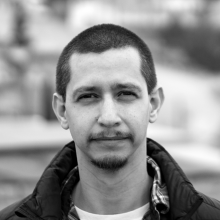
- Postdoctoral Scholar, Cancer Program at the Broad Institute
Augustin Luna develops statistical and mechanistic models to see how cancer cells respond to small molecules and genetic perturbations.
Augustin co-developed CellBox, a machine learning–based algorithm that models cell dynamics to predict responses to a range of perturbations—a capability that could aid the discovery of combination cancer drug therapies. However, these models do not fully capture protein-level information, and most cancer drugs target certain proteins. As a BroadIgnite awardee, he aims to generate large-scale single-cell proteomics data and leverage machine learning algorithms (like CellBox) to better understand the biological mechanisms driving cancer, and identify new treatments that can mitigate drug resistance.
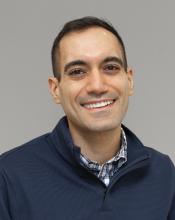
- Senior Research Scientist, Epigenomics Program at the Broad Institute
Fadi Najm deploys molecular tools, like the CRISPR gene-editing technology, to identify therapeutic targets in cancer and immunotherapy.
About 90 percent of the DNA in the human genome does not encode proteins. Scientists have only just begun to get a glimpse of the critical role that the non-coding genome plays in health and disease. Fadi plans to use his BroadIgnite funding to delve into non-coding elements—including enhancers, which activate the expression of certain genes—in order to find novel therapeutic targets for cancer.
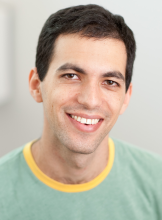
- Postdoctoral Fellow, Medical and Population Genetics at the Broad Institute
Yakir Reshef is decoding the immune system to hone the precision of clinical assessments.
Immune mechanisms are constantly changing to maintain the body’s homeostasis, making it challenging to decipher these processes and make precise diagnoses of disease in clinic. Yakir, a rheumatologist and trained computer scientist, will use his BroadIgnite funding to analyze blood samples using advanced machine-learning approaches, detailing a quantitative picture of how immune states vary in both health and disease. With this map, doctors can someday precisely identify—and treat—the root cause of a patient’s immunological dysfunction.
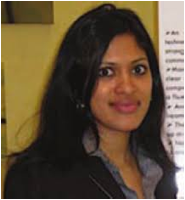
- Senior Computational Scientist, Klarman Cell Observatory at the Broad Institute
Ayshwarya Subramanian decodes cellular diversity in complex human diseases across cells and systems.
Autoimmune diseases like systemic lupus erythematosus (SLE) disproportionately affect women, especially those that identify as Black or Latinx, more than men. However, all patients diagnosed with SLE are treated with the same immunotherapies. BroadIgnite funding will allow Ayshwarya to deploy single-cell sequencing and computational methods and dissect such phenotypic heterogeneity, paving the way for personalized treatments that better manage patients’ symptoms.
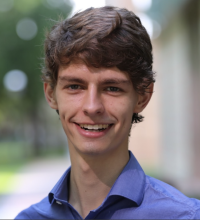
- Graduate Student, Klarman Cell Observatory at the Broad Institute
Constantine Tzouanas applies new technologies, such as spatial imaging tools, to elucidate how cells perform system-level functions in both health and disease.
While scientists understand how organ-level dysfunctions can affect the body, it remains harder to uncover and therapeutically manipulate their core driving mechanisms—Constantine describes it as seeing a crashed car with a broken windshield but not knowing what caused the crash itself, like worn-out brake pads. His BroadIgnite project seeks to couple experimental platforms, such as photochemistry-based spatially-resolved-omics technologies, with computational approaches to investigate the drivers of cells' beneficial or pathologic responses to disease, with applications across cancer, autoimmunity, and infection.
.
2021

- Postdoctoral Researcher, Cellular Biology Program, Broad Institute
Aziz is improving our ability to look inside single cells to better decipher what is happening in health and disease.
Aziz recently pioneered a new technology, called MAS-seq, that timestamps RNA sequencing data, allowing researchers to better investigate individual cells’ behaviors at a specific moment in time, making it possible to capture complex cellular dynamics, such as how tumor cells evolve. Aziz will use his BroadIgnite funding to take MAS-seq to the next level, ensuring its accuracy and rigorousness for studying disease.
As of 2025, Aziz is the director of research and development at the Genomics Platform and director of the Broad’s Methods Development Lab, which he launched in 2022.
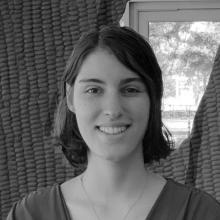
- Graduate Student, Greka Lab, Broad Institute
Juli investigates metabolic disease and its impact on Alzheimer’s disease.
Scientists have uncovered several genetic risk factors for Alzheimer’s disease; however, your DNA alone seldomly determines whether you are at risk of the disease. Juli wants to uncover the role that other health factors, such as metabolic disorders like obesity and diabetes, play in Alzheimer’s development by investigating how neurons handle the metabolic stress induced by Type 2 diabetes. Her goal is to unravel how specific genetic risk variants are influenced by diabetes-related changes and how they can be interrupted to halt disease progression.
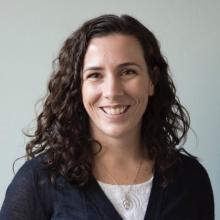
- Associated Scientist, Stanley Center for Psychiatric Research, Broad Institute
- Instructor in Investigation, Analytic and Translational Genetics Unit, Massachusetts General Hospital
- Instructor in Medicine, Harvard Medical School
Alicia Martin wants to address the lack of diversity in genetic studies, which are heavily skewed toward people of European descent.
European ancestry populations, which compose just 16 percent of the global population, make up about 80 percent of participants in genetic studies. Thus, research short-changes almost all other populations and misses vital insights into the genetics associated with human health and disease. Alicia wants to help remedy this bias by using her BroadIgnite grant to sequence more than 3,000 genomes from 14 countries spanning sub-Saharan Africa and to ensure the data is widely accessible.
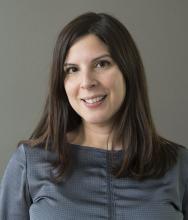
- Associate Director, Stem Cell Program, Broad Institute
Ralda's research is focused on investigating the biological mechanisms underlying neurodevelopmental and psychiatric diseases.
Ralda wants to unravel the biology underlying a rare, incurable genetic disease called 22q11.2DS in order to eventually help find potential treatments. Caused by a tiny deletion of chromosome 22, 22q11.2DS affects an estimated 1 in 4,000 people and results in devastating consequences, including heart defects, severe developmental delays, and facial malformations. Using stem cells that her lab has collected from 50 patients, Ralda will investigate the underlying biological mechanisms of 22q11.2DS-associated heart defects in hopes of elucidating new avenues for therapeutic discovery.

- Graduate Researcher, Broad Institute
- Biological Engineering Ph.D. Student, Massachusetts Institute of Technology
Miguel Reyes is searching for clues as to why Covid-19 hits some patients much harder than others by examining its similarities to sepsis.
Severe Covid-19 and sepsis share similar symptoms—multi-organ failure, shortness of breath, fever, confusion—and both are associated with dysregulated immune response. Miguel and his team recently discovered another connection: The blood cells of patients with severe forms of these diseases have different baseline gene expression profiles than those with mild infection. With BroadIgnite support, Miguel wants to expand this work to identify which immune response pathways are altered in these patients—and whether they can be harnessed as new treatment avenues.
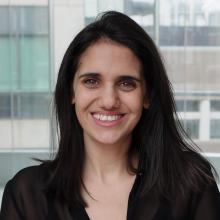
- Postdoctoral Fellow, Infectious Disease and Microbiome Program, Broad Institute
Shira Weingarten-Gabbay focuses on one of the immune system’s main lines of defense: fighters called T cells that recognize invaders and produce pathogen-killing compounds.
While antibodies have gained attention in the Covid-19 pandemic, it’s increasingly clear that T cells—which target and destroy pathogen-infected cells—also play an important role in helping patients fight infections—and develop immunity. During the past year, Shira led a significant discovery in how T cells help defend against SARS-CoV-2: She identified foreign protein fragments, called peptides, that sit on the surface of SARS-CoV-2–infected cells and signal for help from T cells. BroadIgnite funding will allow Shira to delve deeper into the exact mechanisms that control this response—a crucial line of inquiry that could inform the development of vaccines that better recognize the virus.
2020
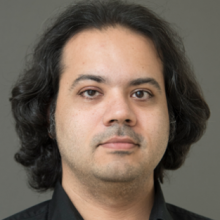
- Associate Director of Machine Learning, Data Sciences Platform, Broad Institute
Mehrtash Babadi leads a team that uses advanced statistical methods from data science to illuminate disease mechanisms.
New molecular imaging technologies have made many exciting discoveries possible in recent years—from the structures of proteins and drug targets involved in cancer to how SARS-CoV-2 binds to human cells. However, current techniques often don’t scale well, and therefore, can’t measure the large number of molecules required to investigate the toughest questions about diseases such as schizophrenia or diabetes. With BroadIgnite support, Mehrtash will explore ways to resolve this limitation using machine learning and new molecular barcoding techniques. Ultimately, he aims to develop a method that can simultaneously profile the complete microscopic state of thousands of cells, at single-molecule resolution, much more quickly and efficiently than current methods.

- Former Scientific Advisor, Stanley Center for Psychiatric Research, Broad Institute
Alina Chan is a molecular biologist who specializes in gene therapy and cell engineering. She formerly served as a scientific advisor for the Vector Engineering Group at the Stanley Center for Psychiatric Research at the Broad Institute.
To contribute to global research efforts against the pandemic, Alina launched an open-source website to track the genetic evolution of SARS-CoV-2. The site, called COVID-19 Coronavirus Genetics, aggregated hundreds of thousands of SARS-CoV-2 sequences from researchers around the world to trace the virus’ distinct mutations as it spread across different geographic regions. Researchers freely used this online resource to answer critical questions about the coronavirus, including which genetic variants to test new therapeutics and diagnostics on before implementation in a specific region. Funds from Alina's 2020 BroadIgnite award enabled her to expand the capabilities of the site and incorporate data from hundreds of thousands of new SARS-CoV-2 genomes to capture developing trends during the pandemic.
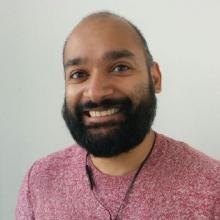
- Senior Computational Scientist, Data Sciences Platform, Broad Institute
Kiran Garimella develops new computational methods to study childhood cancers, structural birth defects, and infectious diseases.
Malaria infects more than 230 million people every year, and drug-resistant strains are rising. To stop this deadly endemic, researchers need new diagnostics—current tests are not sensitive enough to detect new strains or require expensive laboratory set-ups. Kiran has a solution. He’s developing a method that amplifies the genetic material of malaria so that it can be sequenced using 1/500th of the usual amount of required DNA. Unlike conventional techniques, Kiran’s method requires no special equipment, making it especially useful in remote, resource-limited areas. Kiran will use his BroadIgnite funds to hone this new technology and test its effectiveness on various strains of malaria. His hope is to develop a new frontline diagnostic test to aid malaria surveillance efforts in Africa.
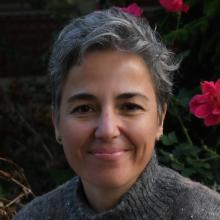
- Associate Director, Sellers Lab, Broad Institute
Alessandra Ianari develops technologies to help deliver new drugs faster and cheaper than traditional methods.
Interactions between proteins—the tiny molecules that keep us alive—play a vital role in driving tumor growth, making them important targets for new drugs. However, they’ve been difficult to hit. Alessandra, a physician-scientist in the Sellers Lab, hopes to help solve this challenge by developing a technology that illuminates protein–protein interactions on a single-cell basis. This would allow researchers to identify how proteins engage and communicate with each other much faster and cheaper than current methods, thereby accelerating the pace of new drug discovery.
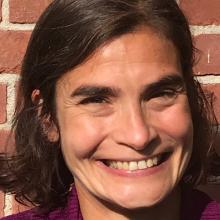
- Research Scientist, Vertebrate Genomics Group, Broad Institute
Diane Genereux studies the DNA of various mammalian species to provide a window into the pathways involved in human disease.
How are bats able to harbor coronaviruses—like SARS, MERS, and SARS-CoV-2—without getting sick? Diane plans to shed light on this biological mystery by using her BroadIgnite award to compare gene expression patterns in human, ferret, and bat cells experimentally infected with SARS-CoV-2. Drawing on the genomic similarities and shared evolutionary history of mammals, Diane aims to identify genetic features that allow bats to tolerate this deadly pathogen, potentially pointing to new therapeutic insights for Covid-19.
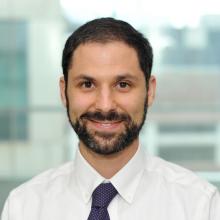
- Postdoctoral Scholar, Infectious Disease and Microbiome Program, Broad Institute
Jacob Lemieux is a researcher in the Sabeti Lab studying red blood cell parasites, tick-borne diseases, and respiratory viruses.
Jacob led a major research effort that sequenced 772 SARS-CoV-2 genomes to trace how the virus spread across the Boston area during the first wave of the Covid-19 pandemic. This type of genomic surveillance works by cataloging the distinct mutations that a virus accumulates as it is transmitted from person to person. With BroadIgnite support, Jacob will expand upon this work and test whether monitoring these mutations in real time can help contact tracing efforts in Massachusetts. By collecting and analyzing genome sequences of SARS-CoV-2 from Boston-area hospitals every week for the next six months, his hope is to detect—and alert public health experts to—new clusters of Covid-19 in the area before they spread.

- Postdoctoral Associate, Regev Lab, Broad Institute
Leif Ludwig is a hematologist whose research focuses on the links between blood cell production and immune system dysfunction.
Stem cells are vital to human health. But we still don’t know the answers to some of the most basic questions about them—such as how many populate our bodies and how they change with age. Leif, a physician-scientist in the Regev Lab, intends to answer these questions by tracking lineages of mutations in human stem cells, similar to building a family tree, using genome sequencing. His work could open new doors for understanding how stem cells contribute to cancer and other blood-related diseases.
2019

- Postdoctoral associate at the Broad Institute of MIT and Harvard
Katie Geiger-Schuller’s research focuses on the immune system’s ability to sense and fight disease.
Katie will use her BroadIgnite award to investigate how immune cells thwart invaders like carcinogens and allergens. Using a new technology that provides rapid readouts of cellular response to multiple stimuli, she will douse batches of immune cells with asbestos and other triggers—and evaluate the results. If successful, the experiment will shed light on potential treatments and provide a more efficient way to test them.
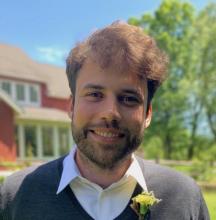
- Visiting postdoctoral scholar at the Broad Institute of MIT and Harvard
Nicolas Wieder is a physician-scientist investigating the molecular mysteries behind metabolic disease.
Metabolic syndrome—a cluster of risk factors that increases one’s susceptibility to heart disease, diabetes, neurodegenerative diseases, and obesity—has reached epidemic levels across the globe. But there’s still a lot we don’t know a lot about the molecular mechanisms behind this disorder—making it difficult to develop therapies. Nicolas hopes to lay the groundwork for new therapies by investigating one of the most poorly understood causes of metabolic diseases: how excessive exposure to certain fats can damage cells and tissue.
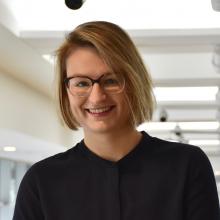
- Postdoctoral researcher at the Broad Institute of MIT and Harvard
Susan Klaeger wants to develop the next wave of personalized cancer therapies.
Personalized cancer vaccines—which train a patient’s immune system to identify and destroy tumors while sparing healthy tissue—may be a game changer in immunotherapy. Susan will use her BroadIgnite award to hone a new technology that can improve the specificity with which researchers customize these vaccines.
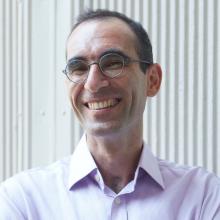
- Associate Member at the Broad Institute of MIT and Harvard
- Melvyn J. and Geraldine L. Glimcher Assistant Professor of Immunology and Infectious Diseases at the Harvard T.H. Chan School of Public Health Physician in the Division of Infectious Disease
Yonatan Grad is a physician-scientist studying infectious diseases and how pathogens evolve and spread throughout populations.
Yonatan will collect and study strains of Neisseria gonorrhoeae, the bacteria that causes gonorrhea, from the Himba, a nomadic, pastoralist tribe of 50,000 people in northern Namibia. The Himba have very high rates of infection—more than 60 percent of adults carry the bacteria—but very low rates of symptomatic disease. Yonatan is using his BroadIgnite award to support travel to Namibia, collect specimens, and conduct DNA sequencing. This work will lead to important insights that will impact the understanding and treatment of antibiotic-resistant gonorrhea—a rising global public health threat—as well as other infectious diseases.
- Senior Group Leader in the Kidney Disease Initiative at the Broad Institute of MIT and Harvard
Jamie Marshall leads a collaboration aimed at unraveling the molecular mechanisms of kidney disease to develop targeted therapies.
Chronic kidney diseases afflict 500 million people worldwide, yet many patients face limited treatment options. Understanding the genes, proteins, and pathways involved in the organ’s deterioration can give patients early—and potentially lifesaving—diagnoses and therapies. Jamie will use her BroadIgnite funding to create cellular maps of the kidney that give researchers a fuller picture of different cell types and interactions—and what happens when they malfunction.

- Postdoctoral fellow at the Broad Institute of MIT and Harvard and Massachusetts General Hospital (MGH)
Karin Pelka studies cancer immunology—which focuses on how to harness a patient’s own immune system to attack tumors.
Colorectal cancer is the second-leading cause of cancer death in the U.S. While recent developments in checkpoint inhibitors—an important class of cancer immunotherapies—hold great promise, most patients do not respond to these powerful drugs, for reasons that remain unclear. Karin wants to find out why by using her BroadIgnite funding to analyze colorectal tumors from patients at MGH.
2018
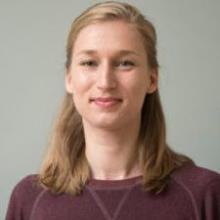
- Postdoctoral Fellow, Macosko Lab, Broad Institute of MIT and Harvard
Aleks Goeva is a statistician specializing in machine-learning models for understanding the human brain.
The human brain is one of the most complex structures in the living world. For centuries, scientists have struggled to understand it. Only in the past few years have state of the art tools like single-cell technologies and 3D cellular models offered hope of gaining insight into the workings of the brain—not to mention mystifying disorders such as schizophrenia, autism, and Alzheimer’s. But they’re also generating unprecedented amounts of data that labs are currently ill-equipped to handle. For her project, Aleks is experimenting with a novel data-analysis method to tackle this growing mountain of data.
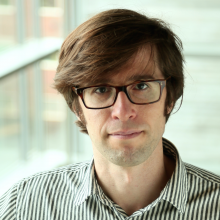
- Postdoctoral Associate at Broad Institute of MIT and Harvard
Andrés Colubri is a computational researcher, visual artist, and designer. He develops new tools that integrate statistics and user-friendly visuals and interfaces to help improve our ability to fight emerging outbreaks.
Lassa fever infects 300,000 people a year in West Africa, causing as many as 5,000 deaths. Andrés is developing new tools that help doctors securely share patient data in real time to better track—and ultimately stop—outbreaks of this deadly disease.
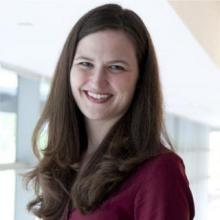
- Institute Scientist, Broad Institute of MIT and Harvard
- Senior Director, Imaging Platform, Broad Institute of MIT and Harvard
Anne Carpenter is a pioneer in building scalable, user-friendly technologies for extracting data from images. She directs a lab of biologists and computer scientists who develop and use advanced machine learning methods to identify important patterns in cell populations. Anne’s team is best known for developing CellProfiler, the first open-source software for cell–image analysis.
New therapies are urgently needed for patients with psychiatric disorders, but developing these drugs is an especially lengthy process. Anne’s lab wants to accelerate the timeline by finding new, efficient methods to test potential therapies in the early stages of their development.
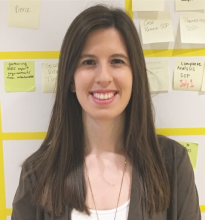
- Graduate Student, Medical and Population Genetics Program, Broad Institute of MIT and Harvard
- Graduate Student, Biomedical and Biological Sciences Program, Harvard Medical School
Beryl Cummings is a graduate student specializing in cutting-edge genomic technologies.
Rare diseases cause enormous suffering, especially among the youngest patients, and diagnoses can take years. This means that patients and families often have to suffer through long periods of pain and uncertainty. Beryl will use a technology called RNA-sequencing, which analyzes genes expressed across tissues, to determine if it can help physicians provide rapid, accurate diagnoses to patients and their families.
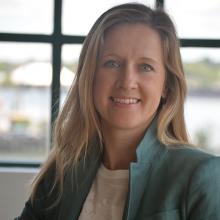
- Postdoctoral Fellow at the Broad Institute of MIT and Harvard
- Pediatric Neuro-oncologist at Dana-Farber Cancer Institute
- Instructor in Pediatrics at Harvard Medical School
Mariella Filbin wants to identify genetic dependencies—mutations that the tumors need to survive—in pediatric brain cancers, with the aim of finding potential therapies.
Most children with diffuse intrinsic pontine glioma (DIPG), a pediatric brain tumor that grows rapidly and has no treatment, die within 12 months of their initial diagnosis. With BroadIgnite funding, Mariella will expand the exciting findings she’s recently made about DIPG, describing cancer stem cells and more mature cancer cells in DIPG for the first time, and potentially uncovering therapeutic leads.
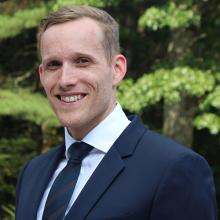
- Associate Member at the Broad Institute of MIT and Harvard
- Assistant Professor in Radiology at Harvard Medical School
- Laboratory Director at the Department of Radiology at Brigham and Women’s Hospital
- Faculty at the Joint Center for Cancer Precision Medicine at Dana-Farber Cancer Institute
Oliver Jonas develops microdevices that diagnose, probe, and treat live tissues within their native environment.
Typically the microdevice—which is smaller than a rice grain—is implanted via biopsy needle into a tumor, where it provides small doses of 30 different chemotherapies and measures the patient’s response to each. The device remains implanted for 24 hours. Then it’s retrieved with the surrounding tissue, which researchers analyze to learn if the therapies were effective. BroadIgnite will support Oliver’s exploration of whether this technique can also work in the human brain, gauging the effectiveness of drugs for neurodegenerative and neuropsychiatric diseases.
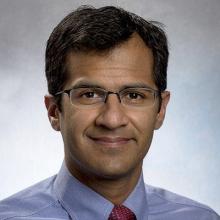
- Research Fellow, Broad Institute of MIT and Harvard
- Instructor in Medicine, Harvard Medical School
- Associate Physician, Cardiovascular Medicine, Brigham and Women’s Hospital
Rajat Gupta is a cardiologist and vascular biology researcher who uses stem cell–derived and genome-edited vascular cells to understand coronary artery disease.
Every year, hundreds of thousands of people in the U.S. die of sudden cardiac death. And, as vital as this area of study is, we still don’t know a lot about a crucial factor: heart cells. Working with clinical partners, Rajat will investigate heart cells in coronary blockages for data that can abet our ability to predict who is most at risk for sudden cardiac death.
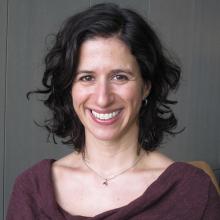
- Postdoctoral Associate at Broad Institute of MIT and Harvard
- Postdoctoral Research Fellow at Brigham and Women’s Hospital and Harvard Medical School
Samantha Riesenfeld is interested in using advanced statistical methods from data science to understand food allergy.
Food allergies endanger more than 220 million people worldwide, two-thirds of whom are children. Yet we still barely understand the biology behind these potentially life-threatening reactions to food. We do know that it is related to the interplay between the immune system and epithelial tissue. BroadIgnite funding will help Sam use statistical machine learning approaches to test an unconventional but potentially revolutionary hypothesis: that our nervous system mediates the immune system’s response.
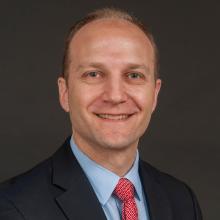
- Associate Member, Broad Institute of MIT and Harvard
- Cardiologist, Department of Medicine, Massachusetts General Hospital
- Assistant Professor of Medicine, Harvard Medical School
Steven Lubitz is a cardiologist at Massachusetts General Hospital who specializes in arrhythmias.
Atrial fibrillation (AFib), an irregular and often rapid heart rate, affects more than 5 million people in the U.S.; if left untreated, it can triple the risk of stroke. Steven will develop a machine-learning approach to track and analyze genomic data for AFib—both known variants associated with AFib and new variants identified through our research. Our aim is to improve our ability to detect this form of heart arrhythmia.
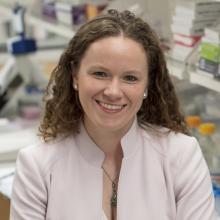
- Associate Member, Broad Institute of MIT and Harvard
- Physician Scientist and Instructor in Medicine, Dana-Farber Cancer Institute
Zuzana Tothova is a medical oncologist at the Dana-Farber Cancer Institute. Her research focuses on blood cancers, a group of cancers including acute myeloid leukemia (AML) and myelodysplastic syndromes (MDS).
MDS affects 30,000 new people each year in the U.S., and its long-term survival rate is less than 5 percent. About 11 percent of MDS patients have mutations in a protein complex called the cohesion complex, which plays an essential role in regulating cell division. Zuzana plans to investigate how cohesin mutations affect a process called DNA looping. Her hypothesis is that malfunctions in DNA looping lead to the development of MDS and other blood diseases.
2017
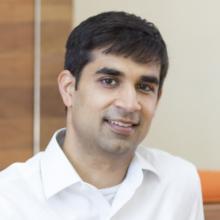
- Postdoctoral fellow in Sekar Kathiresan’s lab at the Broad Institute of MIT and Harvard
- Cardiologist at Massachusetts General Hospital
- Instructor in Medicine at Harvard Medical School
Amit Khera hopes to prevent heart attacks by understanding the genetic mutations behind cardiovascular disease.
What genetic mutations drive the risk of cardiovascular disease? Amit wants to find out. His research focuses on the clinical interpretations of genetic risk, the smartest ways to communicate genetic risk to patients, and how doctors and patients can modify genetic risk through medicine or lifestyle changes.
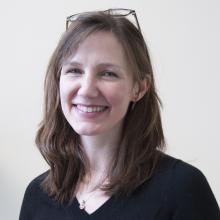
- Leader of the bacterial genomics group in the Infectious Disease and Microbiome Program at the Broad Institute of MIT and Harvard
Ashlee Earl wants to understand how lethal, drug-resistant bacteria flourish and spread, with the goal of finding novel intervention strategies.
BroadIgnite support will jumpstart her efforts to thwart the deadly drug-resistant bacteria called carbapenem-resistant Enterobacteriaceae (CRE). Her studies have shown that CRE are more diverse than previously thought—and that this diversity helps them spread rapidly in hospital settings. Ashlee’s team aims to learn more about the genetic diversity of CRE, with the goal of finding therapies that can target the genes and pathways fueling drug resistance.
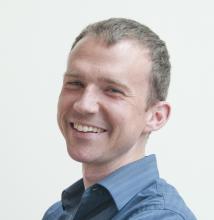
- Associate Director of the Genomic Center for Infectious Diseases at the Broad Institute of MIT and Harvard
Daniel Neafsey is the associate director of the Broad’s Genomic Center for Infectious Diseases. Dan is an expert in mosquitoes and their role in transmitting some of the world’s deadliest diseases, such as malaria and dengue. By unraveling mosquito biology, Dan hopes to learn which drugs, insecticides, and vaccines are likely to work—and why.
BroadIgnite funds will help Dan tackle another mosquito-borne threat: Zika. He’s developing a new way to track mosquitoes in the wild by introducing short, synthetic genetic markers—DNA ‘barcodes’—into larval and adult mosquitoes. By releasing and then recapturing these barcoded bugs, Dan will learn a wealth of information, including mosquito lifespan, population size, and which pest-control measures actually work.
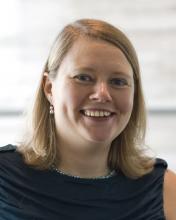
- Director of the Vertebrate Genomics Group at the Broad Institute of MIT and Harvard
Elinor Karlsson is the director of the Broad’s vertebrate genomics group. She studies dog genetics as a window into the pathways involved in psychiatric and neurodegenerative diseases shared by people and pooches, including autism spectrum disorders (ASD).
With BroadIgnite funding, Elinor’s team will launch an investigation into ASD by collecting behavioral and genetic data on 100 dog-wolf hybrids. Why the hybrids? Compared to dogs, wolves make less eye contact, don’t bond easily with other species, and are sensitive to novelty—behaviors that people with autism often display. Elinor believes that understanding the genes that are different between dogs and wolves will provide important clues about ASD in humans.
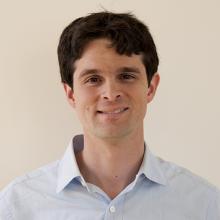
- Principal Investigator in the Stanley Center for Psychiatric Research at the Broad Institute of MIT and Harvard
- Assistant Professor of Psychiatry at Harvard Medical School
Evan Macosko is a physician-scientist who wants to decode mental illness by using novel, high-throughput techniques to analyze brain cells.
An astonishingly diverse and complex collection of cell types populates the human brain—making it difficult to study, especially when you’re trying to learn how cells malfunction in complicated disorders like schizophrenia and autism. Evan and his team will develop new technologies to identify these cells and understand how they contribute to disease.
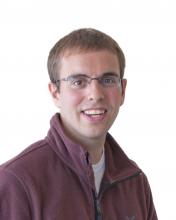
- Group Leader in the Cancer Program at the Broad Institute of MIT and Harvard
Viktor Adalsteinsson runs the Cancer Program’s blood biopsy team—a group of scientists, engineers, oncologists, and computational biologists that develops technologies to monitor the progression of cancer and other diseases through a simple blood draw.
BroadIgnite support will accelerate the team’s pioneering efforts to scan the free-floating DNA in blood for signs of cancer and other diseases. The funding will also support the development of high-powered cellular analysis technology, which can yield insights on the cell types commonly damaged during these diseases.
2016
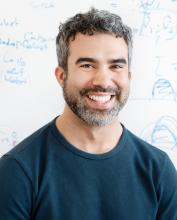
- Computational Scientist at the Broad Institute and Massachusetts General Hospital
Alex Bloemendal is a computational scientist at the Broad Institute of MIT and Harvard and at the Analytic and Translational Genetics Unit of Massachusetts General Hospital. As a member of Broad institute member Ben Neale’s team, Bloemendal builds computational infrastructure to enable biologists to harness “big data” and analyze the genetics of disease.
With BroadIgnite funding, Alex plans to build a new open-source computational tool to expedite diagnosis of a wide variety of diseases.
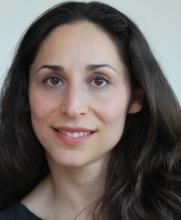
- Institute Member at the Broad Institute
- Assistant Professor at Harvard Medical School
- Associate Physician at Brigham and Women’s Hospital
Anna Greka, an institute member of the Broad Institute of MIT and Harvard, is a practicing nephrologist and scientist who studies the basic molecular mechanisms of kidney disease in order to eventually develop targeted therapies. She is also an assistant professor at Harvard Medical School and an associate physician in the Renal Division at Brigham and Women’s Hospital.
Genetic kidney diseases are rare but devastating, with extremely limited treatment options. Because there are so few patients, each one can provide clues that can help improve therapy for all sufferers. Anna has identified a kidney disease patient who responds exceptionally well to a particular drug, and with BroadIgnite support, she’ll identify similar patients in order to understand why the drug is effective for them. Those results could improve the lives of many patients—from those with rare, genetic kidney diseases to the millions who have diabetic kidney disease.

- Postdoctoral researcher in the labs of Eric Lander and Ramnik Xavier at the Broad Institute of MIT and Harvard
Moran Yassour is investigating how different methods of childbirth affect children’s gut microbiomes.
The bacteria in a baby’s gut can differ radically, depending on how the baby was delivered. But what bacteria are impacted, and why? BroadIgnite is funding Moran’s research into this very question, through a study at Massachusetts General Hospital.
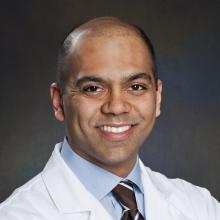
- Associate Member at the Broad Institute
- Assistant Professor at Harvard Medical School
- Deputy Director, Center for Cancer Precision Medicine, Dana-Farber Cancer Institute
Nikhil Wagle is a medical oncologist who studies cancer genomics and precision cancer medicine. He characterizes the genomes of patient tumor samples to better understand the molecular roots of cancer and drug resistance and to identify mutations that can be targeted with available treatments.
BroadIgnite support has propelled Wagle's Metastatic Breast Cancer (MBC) Project, an initiative to recruit people across the country with metastatic breast cancer to participate in research. The funding has allowed him to analyze some of these samples, with the aim of understanding the differences in tumors that arise in younger versus older patients.
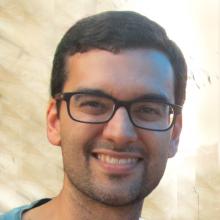
- Postdoctoral Fellow at Broad Institute of MIT and Harvard
Roby Bhattacharyya is an attending physician in infectious diseases at Massachusetts General Hospital and a postdoctoral researcher in Deb Hung's lab studying antibiotic resistance. He seeks to understand how bacteria adapt to the most powerful antibiotics and design rapid methods for detecting resistance.
BroadIgnite funds will allow Roby to develop and test a rapid diagnostic for meningitis that can identify the responsible pathogen from the cerebrospinal fluid of patients. Bacteria, viruses, or fungi can all cause meningitis, but it can take up to a week to identify the source of the infection. In the meantime, doctors have to make an educated guess—and may end up prescribing antibiotics that don’t actually target the disease, but can instead contribute to antibiotic resistance. Roby seeks to shorten the time to diagnosis by developing an RNA-based assay that would identify the source pathogen by its expressed genes. Unlike current tests, it would work for any variety of meningitis.
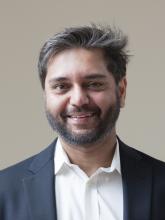
- Postdoctoral Fellow at Broad Institute of MIT and Harvard
- Attending Pathologist at Massachusetts General Hospital
Siddhartha Jaiswal is an attending pathologist at Massachusetts General Hospital and a postdoctoral fellow in Ben Ebert’s lab at the Broad Institute studying age-related diseases. His research is focused on the relationship between genetic mutations, cell biology, and aging.
BroadIgnite funding will allow Sidd to analyze the DNA of people with Alzheimer’s to look for age-related genetic mutations that might play a role in the disease. In previous research, Sidd has shown that when age-related mutations occur in blood cells, they can lead to blood cancer. Strikingly, he found that the same set of mutations is also implicated in cardiovascular diseases such as heart attack and stroke. That suggests that these mutations could change how some blood cells function—and also that a shared mechanism underlies diseases of aging like cancer, cardiovascular disease, and dementia. Based on these insights, his BroadIgnite-funded project will determine whether these mutations are also at play in Alzheimer’s; if confirmed, this could eventually lead to powerful new therapeutic avenues in diseases of aging.
2015

- Associate Member at the Broad Institute
- Assistant Professor at MIT
- Assistant in Immunology at Massachusetts General Hospital (MGH)
Alex Shalek is a chemical biologist who uses nanotechnology techniques to understand how cells work together in health and disease. He is the Hermann L.F. von Helmholtz Career Development Professor at the Harvard-MIT Program in Health Sciences and Technology (HST) and an assistant professor of chemistry at MIT, where he is a core member of the Institute for Medical Engineering and Science. He is also an associate member of the Ragon Institute of MGH, MIT and Harvard.
BroadIgnite funding is supporting the Shalek lab’s efforts to use cutting-edge single-cell genomic assays to study HIV. They’re studying how a rare population of HIV+ individuals, known as elite controllers, prevents the spread and growth of the virus in their bodies without treatment. The award has enabled the lab to travel to Durban, South Africa to follow up on initial findings with collaborators at the Kwazulu-Natal Research Institute for Tuberculosis and HIV.
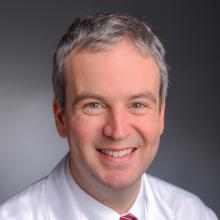
- Associate Member at the Broad Institute
- Assistant Professor at Harvard Medical School
Eliezer Van Allen is a cancer researcher who uses genomics to guide treatment decisions in genitourinary (prostate, kidney, testicular, and bladder) cancers. He is also a practicing oncologist at Dana-Farber/Partners Cancer Care.
Eli is using BroadIgnite funding to study exceptional responders—cancer patients who respond extremely well to new immunotherapies.
Eli and his team have sequenced the expressed genes of five exceptional responders and three of the resistant tumors from these patients. That allowed them to identify a new gene candidate that mediates the response to a novel cancer immunotherapeutic. Eli is now analyzing the data to identify other genes that could play such a role, especially in rare cancers like sarcoma.
Listen to the BroadIgnite Podcast with Eli van Allen
Watch Eli van Allen discuss how genomics is transforming cancer care
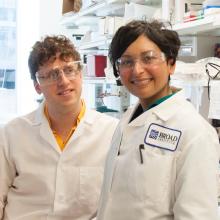
- Graduate students at the Broad Institute of MIT and Harvard
BroadIgnite '15 awardees Eric Minikel and Sonia Vallabh are Ph.D. students in Stuart Schreiber's laboratory at the Broad Institute. In 2010, Sonia’s mother abruptly developed and died of prion disease— a rapidly progressive and fatal neurodegenerative disorder caused by the spread of misfolded proteins in the brain. The following year, Sonia learned she had the same mutation that caused her mother’s disease. Thus, Sonia and her husband Eric left their career in consulting to begin studying biology, with the long-term goal of designing small molecule therapeutics for prion diseases.
Eric and Sonia are developing methods and models to study prions, find and test new therapeutics, and identify ways to track the progress of the disease.
With their BroadIgnite funds, they have set up a dedicated room at the Broad with all the tools necessary to establish RT-QuIC, a new assay, as a tool for drug discovery. They are now isolating pure prion protein from cells to use in their experiments.
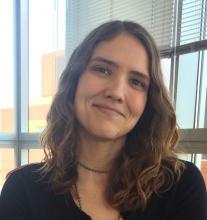
- Postdoctoral Fellow at the Broad Institute of MIT and Harvard
Sara Jones is a postdoctoral fellow in Feng Zhang's lab at the Broad Institute. Her research focuses on identifying and developing novel strategies for gene editing through the study of organisms that aren’t usually studied in the lab.
BroadIgnite funding is supporting Sara’s efforts to adapt the clever genetic strategies of “pond scum” for therapeutic use. She studies a pond-dwelling microorganism that shatters its DNA into hundreds of thousands of pieces, which it must rearrange and reassemble to survive. By understanding how such complex genome architectures can be sustained in nature, she hopes to build a new platform for gene therapy in mammalian cells.
2014
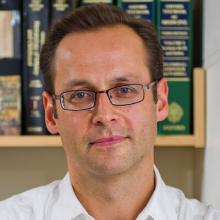
- Institute Member at the Broad Institute
- Assistant Professor of Pediatrics at Harvard Medical School
Nick Haining is a pediatric oncologist who studies cancer immunology—harnessing a patient’s immune system to attack tumors. Nick also sees patients at the Dana-Farber Cancer Institute.
Recent developments in cancer immunotherapy hold great promise, but so far only a tiny fraction of patients respond to the current drugs. Nick hopes to lay the groundwork for identifying new therapeutic targets by understanding the underlying biology of the interactions between cancer and the immune system. He’s using his BroadIgnite funds to systematically and comprehensively identify the genetic mutations and pathways that enable tumors to elude our immune defense.
Nick’s laboratory has built the tools necessary to tackle this project—mouse cancer cell lines for melanoma, lung cancer, and colon cancer, using the CRISPR genome-editing tool. His team is now working closely with the Broad’s Genetic Perturbation Platform to scan the genome to identify the genes involved in cancer therapy resistance, and probe some of these promising genes to identify new therapies.
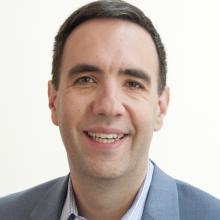
- Chief Data Officer at the Broad Institute
- Venture Partner at Google Ventures
Anthony Philippakis is a physician, geneticist, and data scientist. He is also a cardiologist at Brigham and Women’s Hospital, where he cares for patients with rare genetic cardiovascular diseases.
BroadIgnite funding is supporting Anthony’s efforts to launch a “Genomic Matchmaker” database. This revolutionary database will allow clinicians and researchers to rapidly scan vast catalogs of genomic data to find other samples with the same genetic changes—advancing biomedical research and guiding clinical decisions.
BroadIgnite support has seeded further funding of the “genomic matchmaker” devised by Anthony and his colleagues. Thanks to BroadIgnite funds, he has recruited a key staff member to identify suitable patient cohorts and manage the portal’s large datasets, and his team is now refining and extending existing software.
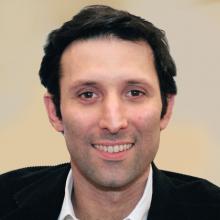
- Institute Member at the Broad Institute
- Associate Professor of Medicine at Harvard Medical School
- Co-director of the Cancer Program at the Harvard Stem Cell Institute
Ben Ebert is a hematologist and oncologist whose research focuses on cancers and other disorders that affect the production of red blood cells. He also leads the leukemia program at the Dana-Farber/Harvard Cancer Center.
Laboratory models of leukemia often don’t reflect the genetic reality of patients’ cancers. Ben is tackling this challenge by using the CRISPR genome-editing tool to develop new models of drug-resistant childhood leukemias with more realistic mutations—including some identified in his lab. These models can be used to search for new treatments that can kill the drug-resistant cancer cells. This project will provide researchers with a steady and reliable source of leukemia models to advance our understanding of blood cancers and test new experimental therapies.
Ebert and his team have created several models and used them to test how different mutations change how the blood cancers respond to a specific cancer drug.
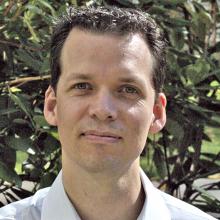
- Institute Member and Co-Director of the Program in Medical and Population Genetics at the Broad Institute
- Group Leader in the Analytic and Translational Genetics Unit at Massachusetts General Hospital
Daniel MacArthur is a geneticist who pulls useful information out of genetic “big data.” He is also an assistant professor at Harvard Medical School.
As a BroadIgnite awardee, Daniel is using his funds to launch an initiative to provide definitive diagnoses for 20 patients suffering from rare muscle diseases using a method developed at the Broad. By sequencing the patients’ expressed genes, he’s working to identify the exact genetic cause of these severe diseases.
Using the latest Broad technology, the MacArthur lab has analyzed the expressed genes from 37 patients with severe muscle disease. As a result, the lab has successfully diagnosed 15 patients with rare disorders, and continues to crunch the data for the remaining participants. For three of these patients’ families, clinical collaborators have designed prenatal tests to enable them to have healthy additional children.
Listen to the BroadIgnite Podcast with Daniel MacArthur and Monkol Lek